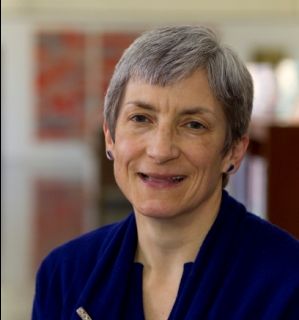- About Archives
- About SAA
- Careers
- Education
- Publications
- Advocacy
- Membership

Director of Special Collections,
Temple University Libraries
“Now, more than ever, we need leaders and teachers representing other traditions to help us redefine what completeness, diversity, and accessibility means....We have a core commitment to our members to ensure that they learn and grow throughout their professional lives.”
PROFESSIONAL EXPERIENCE
EDUCATION
SELECTED PROFESSIONAL ACTIVITIES
SELECTED PUBLICATIONS AND AWARDS
SELECTED PRESENTATIONS
More than 35 presentations at regional and national conferences on appraisal, acquisition, management, and other topics (1984–present).
QUESTION POSED BY NOMINATING COMMITTEE
At its November 2018 meeting, the SAA Council reviewed and reaffirmed SAA’s strategic plan, indicating a strengthened commitment to Goal 3 (Advancing the Profession). Looking ahead to 2019–2021, please discuss what you see as the strengths of the current strategic plan, two or three ways in which you might seek to advance the profession, and the rationale for your suggestions.
CANDIDATE'S RESPONSE
This is the ideal year to take a clear-eyed view of where SAA has been, where we are, and where we’re going. We have an updated version of SAA’s strategic plan that focuses equally on strengthening outward-facing advocacy and building profession- and member-facing resources and professional development opportunities. To move SAA and the profession forward while maintaining balance across our strategic goals, SAA’s infrastructure must be strong and nimble.
From the perspective of my nearly forty-year commitment to SAA, three activities stand out as vital to the profession.
In the current social and political climate, ensuring the completeness, diversity, and accessibility of the historical record is ever more essential. SAA has worked toward this goal by supporting programs such as Mosaic scholarships and offering cultural diversity competency training that build members’ skill sets. Now, more than ever, we need leaders and teachers representing other traditions to help us redefine what completeness, diversity, and accessibility mean. And we need to increase opportunities for every member of the profession to develop these competencies and integrate the ability to engage with and respect people of different backgrounds into their interactions with users, donors, and colleagues. We have much to learn from each other and our various constituencies.
Standards enable us to speak a common language—and help us define our work as professionals, nationally and internationally. The Society’s creation and adoption of standards has increased exponentially and that work needs even more support and consistency—and a plan for proactively identifying need, creating or participating in creation, and advocating for new standards, guidelines, and best practices. We must continue to codify our knowledge and expertise for our fellow archivists and for other professions.
SAA exists to serve its members and encourage them in their professional growth. The goal to support the career development of members to assist them in achieving their goals has been a touchstone throughout SAA’s history. While the goal is timeless, the means, media, and content need constant review and refining. Exploring and experimenting with the programs and services that enable us to meet members' needs, for their entire career, is critical. We have a core commitment to our members to ensure that they learn and grow throughout their professional lives.
Slate of Candidates |
The Nominating Committee has slated the following SAA members as candidates for office in the 2019 election: